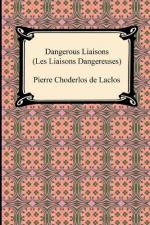|
This section contains 5,805 words (approx. 20 pages at 300 words per page) |

|
SOURCE: “Merteuil and Mirrors: Stephen Frears's Freudian Reading of Les Liaisons dangereuses,” in Eighteenth-Century Fiction, Vol. 5, No. 3, April, 1993, pp. 269-81.
In the following essay, Singerman applies Sigmund Freud's concepts of psychoanalysis to Stephen Frears's and Christopher Hampton's 1988 film adaptation of Les Liaisons dangereuses.
Choderlos de Laclos's notorious epistolary novel, Les Liaisons dangereuses (1782), portrays the agonistic relationship between two master libertines, the Vicomte de Valmont and the Marquise de Merteuil, and the catastrophic consequences of their efforts to dominate each other while pursuing their sadistic games of seduction and humiliation against lesser opponents. The libertine character, as mythically incarnated by Don Juan, has been subjected to extensive psychoanalytical study, including well-known analyses by Jean-Pierre Jouve and Otto Rank, as well as the more recent “Oedipal reading” by Peter Gay.1 Don Juan's comportment has been cited, for instance, as a striking example of the unconscious workings of a repressed, unresolved...
|
This section contains 5,805 words (approx. 20 pages at 300 words per page) |

|


